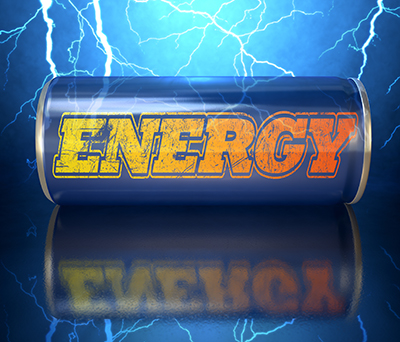
Your teenage son begins his day with an energy drink, sometimes has one for lunch and then another while he is doing his homework after school. He says it helps him concentrate better.
You are worried this is too much caffeine for his system – and you are right. The caffeinated boost these drinks give can cause a variety of health problems.
An 8 oz. cup of coffee contains about 100 milligrams of caffeine, one energy drink can contain as much as 242 milligrams of caffeine and one energy shot can be packed with as much as 500 milligrams of caffeine.
Studies have shown that more than 200 milligrams of caffeine a day can be dangerous for children and adolescents.
Energy drinks pose unique hazards because they are often sold in larger sizes that deliver a potent dose of caffeine. They are also packed with sugar and other stimulants to keep an individual alert.
The beverages are flavored and colored to look like soft drinks, making them more appealing to children and teenagers than a cup of coffee. They are also habit forming.
Dana Ankney, MD, a pediatrician with Washington University Clinical Associates explains, “Consuming large quantities of caffeine can cause problems like dehydration, rapid heartbeat, increased blood pressure, muscle tremors and seizures. Adolescent consumption of caffeine has also been linked to insomnia, headaches, increased anxiety and developmental problems.
In addition, the adverse reactions are multiplied when the energy drinks are taken with prescription drugs (such as Ritalin), alcohol or illegal drugs. This dangerous combination gives kids a double dose of chemical high and often sends them straight to the emergency room.”
As with most things, moderation is recommended when consuming energy drinks. Education is key and consumers need to be aware of how much caffeine is in a drink. It is also recommended that teens consume no more than one 250 ml energy drink per day and not before or during sports or exercise.
Parents need to know what their children are drinking and talk to them about what is safe. The American Academy of Pediatrics advises against giving ANY energy drinks to children 12 years and younger.